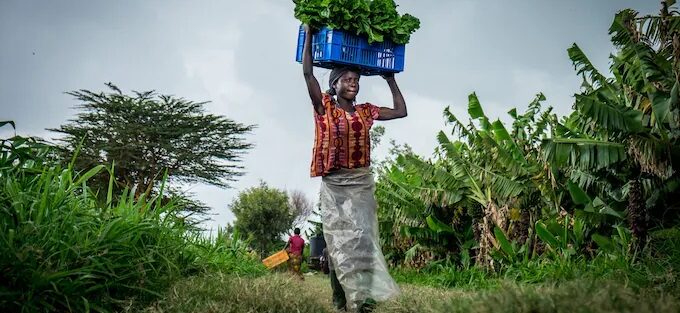In the pursuit of a sustainable future, Governor Peter Mbah of Enugu State recognizes the indispensable role of local communities. His vision for a sustainable Enugu is deeply rooted in community involvement and empowerment, ensuring that every citizen contributes to and benefits from progress towards environmental resilience and economic stability. Local communities are pivotal in driving transformative climate action and sustainable development, bringing unique strengths and perspectives to the forefront of this endeavor.
The Crucial Role of Local Communities in Climate Action
Local communities stand at the frontline of climate change impacts, experiencing firsthand the consequences of shifting weather patterns, deforestation, and water scarcity. Governor Mbah acknowledges the invaluable indigenous knowledge and adaptive strategies present within these communities, which are essential for effective climate action. By amalgamating local wisdom with scientific approaches, Enugu State can craft robust and context-specific solutions to climate challenges.
Governor Mbah’s administration is dedicated to fostering community-based initiatives that promote sustainable land use, conservation efforts, and renewable energy projects. These initiatives not only mitigate the adverse effects of climate change but also empower local communities to take ownership of their environmental future. Involving communities in climate action plans ensures that solutions are equitable and inclusive, leaving no one behind.
Globally, involving local communities in conservation efforts significantly enhances their effectiveness. For example, community-managed forests in Nepal store up to 30% more carbon than government-managed forests, highlighting the critical role of local stewardship. Similarly, indigenous territories in the Amazon rainforest experience significantly lower deforestation rates, underscoring the importance of local involvement in preserving vital ecosystems.
Local communities possess a deep understanding of their immediate environment, making them effective stewards of natural resources. Governor Mbah’s approach involves leveraging this knowledge to promote reforestation programs and sustainable agricultural practices, crucial for combating soil erosion, preserving biodiversity, and ensuring food security. By integrating traditional ecological knowledge with modern techniques, local communities lead the way in climate resilience and sustainable resource management.
Furthermore, local communities play a pivotal role in the success of renewable energy projects. Governor Mbah’s administration focuses on expanding access to clean energy through solar, wind, and hydroelectric power projects. By engaging communities in the planning and implementation of these projects, the government ensures that the benefits of renewable energy are widely distributed, reducing greenhouse gas emissions and improving residents’ quality of life.
Unleashing the Potential of Rural Communities
Rural communities in Enugu State hold immense potential for driving sustainable development. Governor Mbah envisions a future where these communities are not merely recipients of aid but active participants and leaders in the state’s development agenda. Investment in rural infrastructure, such as sustainable farming technologies and renewable energy sources, is crucial for achieving this vision.
Supporting farmers with modern tools and techniques enhances productivity while minimizing environmental impact, boosting the local economy and promoting food security. By improving rural healthcare and education, Governor Mbah empowers communities to thrive, ensuring that the benefits of development are felt across all sectors.
Additionally, Governor Mbah is committed to promoting rural entrepreneurship and small-scale industries, creating employment opportunities and fostering innovation within rural communities. By tapping into the entrepreneurial spirit of rural residents, Enugu State can build a diverse and sustainable economy that benefits all.
Central Stage in Climate Change Intervention Actions
Governor Peter Mbah emphasizes the central role of local communities in climate change intervention actions. The impacts of climate change are most acutely felt at the local level, making community involvement imperative in developing and implementing solutions. Governor Mbah’s administration is focused on building the capacity of local communities to engage in climate action, fostering ownership and responsibility among residents.
Studies show that climate adaptation projects are more successful when local communities are actively involved. Involving communities in the development of climate policies and programs enhances their effectiveness and builds trust and collaboration between the government and residents. Governor Mbah’s administration is committed to promoting inclusive and participatory decision-making processes, ensuring that climate interventions are responsive to local needs and priorities.
Furthermore, Governor Mbah emphasizes sustainable land use and natural resource management, working with local communities to develop and implement land use plans. This approach protects the environment and supports local livelihoods, fostering resilience against climate change.
Governor Mbah’s Vision for a Sustainable Future
Governor Peter Mbah’s vision for a sustainable future revolves around empowering and engaging local communities. By recognizing the importance of local knowledge, investing in rural infrastructure, and promoting inclusive decision-making processes, Governor Mbah is laying the groundwork for a sustainable and prosperous Enugu State. His administration’s commitment to sustainability is evident in its policies and programs, which span from renewable energy initiatives to improvements in healthcare and education. By involving local communities in these efforts, Governor Mbah ensures that the benefits of development are shared equitably and that Enugu State is resilient in the face of climate change. In conclusion, local communities are at the heart of Governor Peter Mbah’s vision for a sustainable future in Enugu State. Their involvement and empowerment are essential for driving effective climate action, fostering sustainable development, and promoting economic growth. By prioritizing community engagement and leveraging local knowledge, Governor Mbah is paving the way for a future where every citizen can thrive and contribute to a resilient and prosperous Enugu State.



